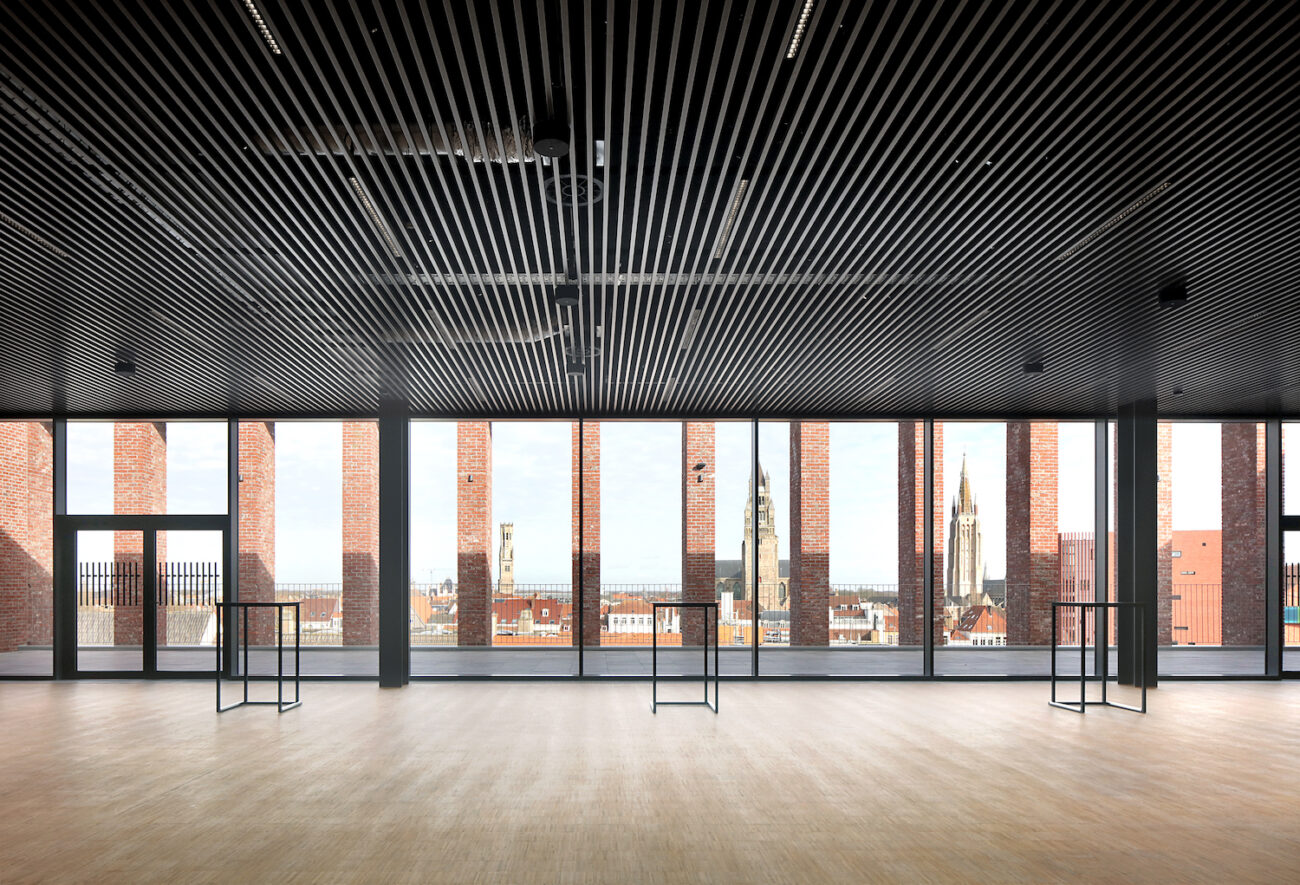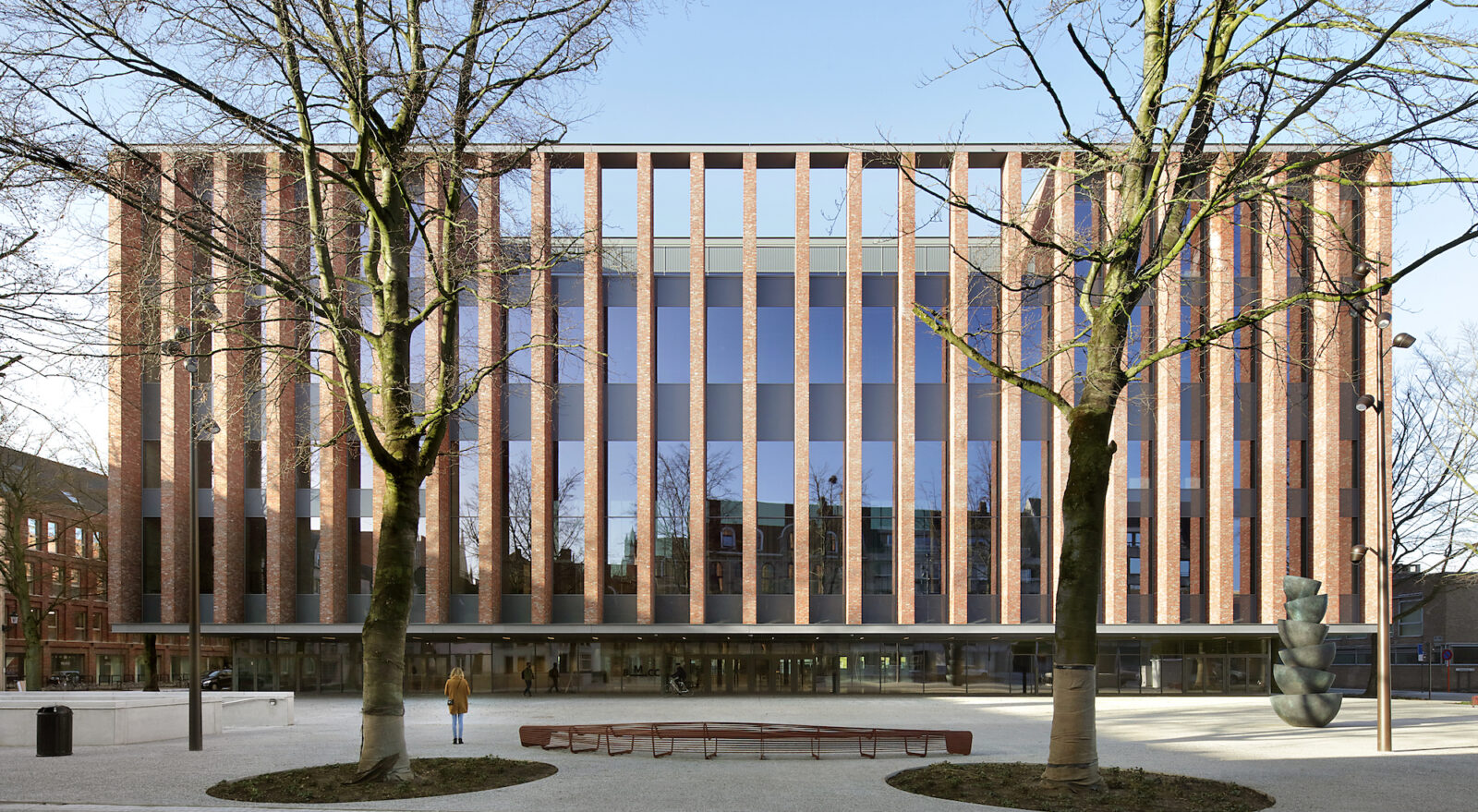The capital and largest city of the province of West Flanders in the Flemish Region of Belgium, in the northwest of the country, Bruges has retained over time the splendor of its medieval architectural heritage. Its historic centre is a UNESCO World Heritage site since 2000, and crosses beautiful Gothic brick buildings and masterpieces of Flemish primitive art.
Bruges is like an open air museum: everywhere you go is like a feast to the eyes. Thanks to its network of channels, the city has been nicknamed the “Venice of the North”: whether by boat or by foot, the city is a mere hour from Brussels, easily accessible and surely walkable no matter where you stay.
Awe-inspiring infrastructure
If its touristic attributes are well known the world over, Bruges now wants to become a strong contender in the meetings world. To do this, it’s recently unveiled an awe-inspiring piece of infrastructure in the form of a brand-new convention centre.
Ideally situated in the heart of the city – something that is becoming quite rare nowadays, as large purpose-built conference venues are not usually located downtown – within walking distance of numerous hotels and well-known attractions, the Bruges Meeting & Convention Centre (BMCC) has been designed by award winning Portuguese architect Souto de Moura together with the Antwerp based architects META. Flexibility and transparency are key words here: all of the rooms have daylight, including the Expo Hall on the ground floor; there’s an auditorium for up to 514 people, and 12 breakout rooms that can be easily adapted to your needs. Altogether, the Centre can accommodate up to 2,500 participants for an event – the top floor with a beautiful view over the city deserves a special mention.
As it should, the BMCC is embracing sustainability with open arms. The venue is a nearly Zero Energy Building or nZEB, which means that it was built according to the principles of strict ecological design. Environment-friendly materials were also carefully selected at every stage of construction, while partners to work with for the organization of events, such as caterers, AV companies, etc., must also demonstrate a commitment to sustainability.
Raising the profile
“Although we’re obviously interested in getting all kinds of business events, association conferences are a special target of ours,” says BMCC director Sarah Cornand. “We’ve already managed to secure a few national and international conventions that will raise the profile of Bruges as a meeting destination. With the special partnership we signed with KU Leuven – which shows we clearly understand what conferences aim to achieve and that we’re here to help – we’re confident we’ll become a strong contender in the business events world.”
The City of Bruges, BMCC and KU Leuven, the catholic research university based in Leuven but which has a campus in Bruges, have indeed concluded a collaboration agreement to support conference organization in Bruges. In concrete terms, this concerns a commitment between the three parties to organize more conferences, colloquia and symposia of KU Leuven in Bruges and in particular the BMCC.
As Mayor Dirk De fauw says: “The aim of this new partnership is to generate an increase in conferences and business tourism for our city and the wider Bruges region, and thus to further expand the city’s image as a meeting and conference destination. There are already close ties between the City and KU Leuven. The university has been present in our city since 2017 with a campus at the station. Future physiotherapists and industrial engineers are trained there and researchers are doing pioneering work in the fields of health, sustainability and technology.”
With such a vision, well-thought out strategy and commitment to excellence when it comes to hosting conferences, there’s no doubt that Bruges, thanks to its dynamic convention bureau and the brand-new BMCC, will be on the meetings map as never before.

